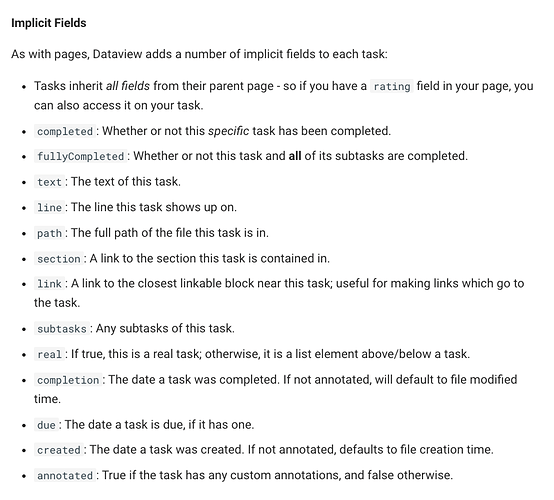Dear task management devs,
thank you for all the work you’ve put in to create such diverse task management solutions that cater to a lot of different needs and preferences- we are lucky to have so many options! I’m sure many like one solution for some tasks and another for different tasks, or using a different plugin that augments features found in their ‘main use’ plugin. Or perhaps some like to switch between plugins for different projects, time of the year, etc.
The problem is that currently there are a variety of different date configurations options, from pop-up modals, to date pickers, to emojis etc, to let the plugin parse the date, rather than making use of the great natural language dates plugin and the DNP format.
Kanban plugin: - [ ] task 1 @[[2021-11-01]]
Tasks plugin: -[ ] task 1  2021-11-1
2021-11-1
Reminders: - [ ] task 1 ([[2021-11-01]] 8:35)
Cardboard: - [ ] task 1 @due (2021-11-01)
I would like to propose a ‘date standard’ for all plugins, for greatest compatibility with each other, but more importantly for frictionless task entry and increased compatibility with core features of Obsidian (e.g. DNP and backlinks) and with Dataview.
The syntax would be text-based signifiers or key::value pairs and look like this:
- [ ] wash the car due:: [[2021-11-02]]
- [ ] submit abstract start:: [[2021-11-08]] due:: [[2021-11-12]] reminder:: [[2021-11-11]]
The advantage would be that it would help task data entered for one plugin work with others, e.g. tasks would render and be queryyable in all task management plugins - which would be amazing! Some examples: I could add a task that is queryable by the Tasks plugin in on my DNP template, as well as have it automatically appear in my Cardboard for a quick visual overview of this week. Or I could have a dedicated task master list via a Dataview query, but also have the task appear in my DNP backlink section or on my Kanban board - the possibilites would be endless!
However, to enable this glorious interoperability, all task management plugins would need to have a setting to switch on ‘use date standard syntax’ and all prior dates would get updated. In order not to break what’s working, this should definitely be an optional setting, so that users who are happy with their set-up do not have to change anything.
I am not a programmer (I don’t even know how to get the calendar emoji into my task on the computer without a lot of copying & pasting…), so I apologize if this suggestion is not doable or very difficult to implement, though I am hopeful, as I can see that the Reminders plugin offers a choice of date formats to use.

 )
)
 .
.